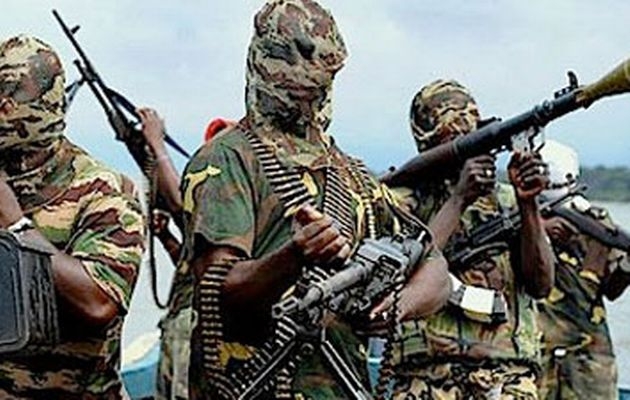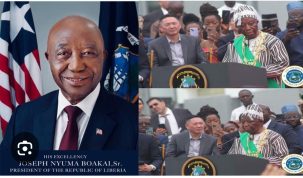Nigerian parents lashed out on Tuesday at the government’s failure to rescue scores of schoolgirls kidnapped two weeks ago by Boko Haram Islamists, as a local leader claimed the hostages had been sold as wives abroad.
“May God curse every one of those who have failed to free our girls,” said Enoch Mark, whose daughter and two nieces were among the more than 234 students abducted from the Government Girls Secondary School in the Chibok area of northeastern Borno state.
The parents outrage came as Pogo Bitrus, leader of a Chibok elders group said the captured girls are being offered to Boko Haram fighters at $12 each.
Bitrus said that locals had been tracking the movements of the hostages with the help of “various sources” across the northeast.
“From the information we received yesterday from Cameroonian border towns our abducted girls were taken… into Chad and Cameroon,” he said.
The girls were then sold as brides to Islamist fighters for 2,000 naira ($12) each, Bitrus added.
The attack was one of the most shocking in Boko Haram’s five-year uprising, which has claimed thousands of lives across northern and central Nigeria.
The outrage that followed the mass abduction has been compounded by disputes over how many girls were seized and criticism of the military’s search-and-rescue effort.
Borno officials have said that 129 girls were kidnapped when gunmen stormed the school after sundown on April 14 and forced the students — who are between 12 and 17 years old — onto a convoy of trucks. Officials said 52 have since escaped.
Locals, including the school’s principal, have rejected those numbers, insisting that 230 students were snatched and that 187 are still being held hostage.
Mark told AFP that his wife has hardly slept since the attack, lying awake at night “thinking about our daughter”.
Some of the girls who escaped have said the hostages were taken to Borno’s Sambisa Forest area, where Boko Haram has well-fortified camps.
Boko Haram’s name translates as “Western education is forbidden”, and it has repeatedly attacked schools during an insurgency aimed at creating a strict Islamic state in mainly Muslim northern Nigeria.
The Islamists have set schools on fire, massacred students in their sleep and detonated bombs at university campus churches.
President Goodluck Jonathan has faced scathing criticism over the attacks and the pressure has mounted since the Chibok kidnappings.
Locals have scoured the bushlands of the remote region, pooling money to buy fuel for motorcycles and cars to conduct their own rescue effort, saying they have no confidence in the military’s search.
“The free movement of the kidnappers in huge convoys with their captives for two weeks without being traced by the military which claims to be working diligently to free the girls is unbelievable,” Bitrus told AFP.
Nigeria deployed thousands of additional troops to the northeast last year as part of an offensive aimed at crushing Boko Haram, but security experts say the military lacks the troops needed to fully cover the region.
The defence ministry on Friday said it had killed 40 insurgents near Sambisa Forest in an operation aimed at finding the kidnappers.
An organisation called Women for Peace and Justice has called for a “million-woman protest march” in the capital Abuja on Wednesday to demand that more resources be committed to securing the girls’ release.
While the group is unlikely to rally a crowd of that size, support for the movement has been growing on Twitter under #BringBackOurGirls.
“How is it possible in the age of drones and Google Maps and aerial shots that over 200 girls will vanish without a trace,” protest organiser Hadiza Bala Usman said in a statement.
Security sources have said it is possible the Islamists are using the hostages as sexual and domestic slaves.
Amid the rumours and lack of information, Mark said he feared some of the affected families “may take the law into their own hands”, while others may decide they can no longer cope.
“It is not everyone who can absorb this grief.”
Liberia’s National Budget An Instrument for National Development or National Destruction? By Frederick A.B. Jayweh, B.A, LL.B., LL.M

Spread the loveLiberia’s National Budget An Instrument for National Development or National…





